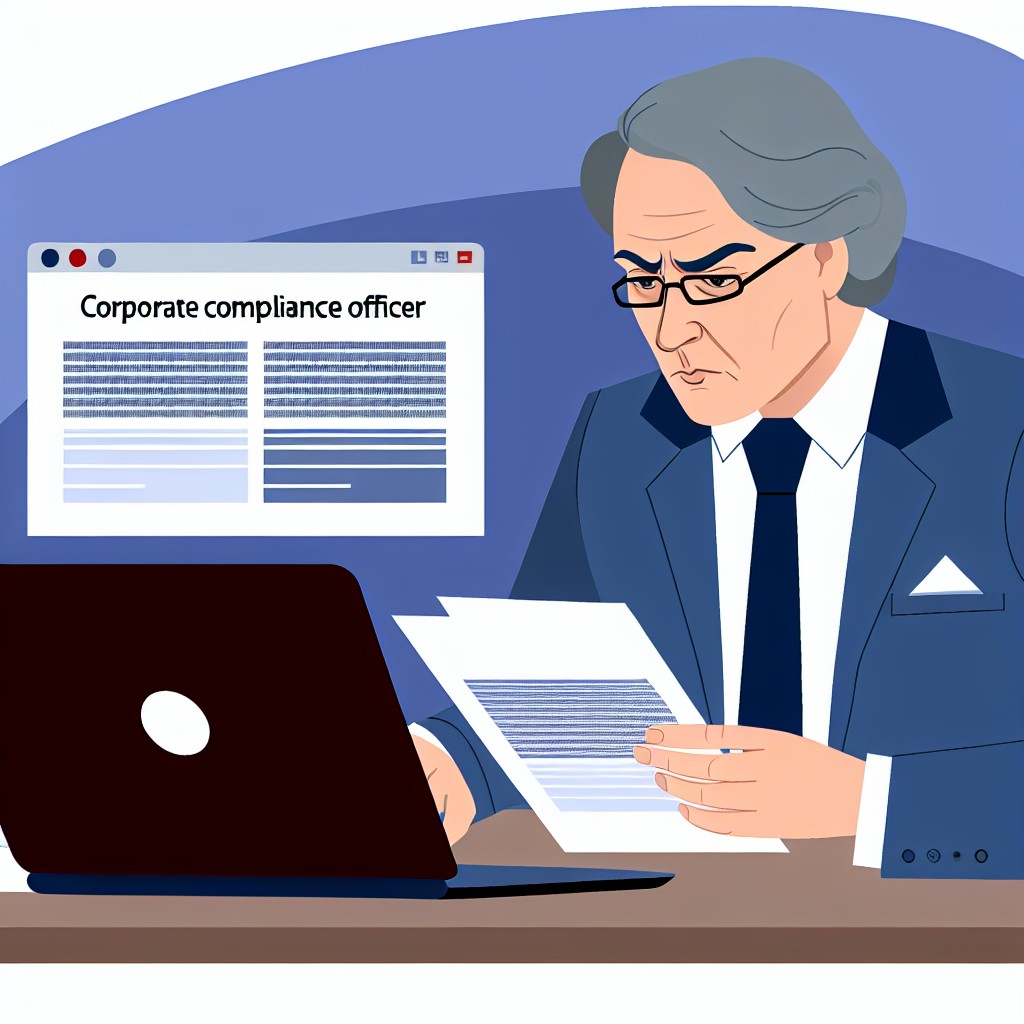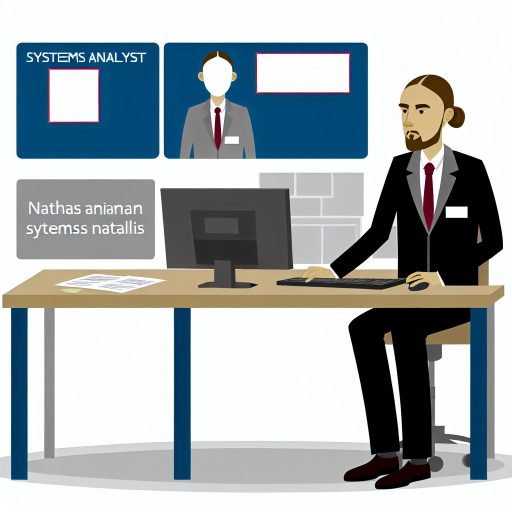Introduction
Cyber forensics involves the collection.
It involves the preservation of digital evidence.
It also includes analyzing digital evidence from various technologies.
This field is crucial in identifying security incidents.
Cyber forensics helps investigate cybercrimes effectively.
It ensures the integrity of data throughout investigations.
Moreover, cyber forensics has become essential for businesses today.
Companies use it to protect their valuable assets from cyber threats.
Transitioning into corporate compliance, cyber forensics plays a key role.
It ensures organizations adhere to relevant regulations and standards.
Understanding Corporate Compliance
Corporate compliance means following laws, regulations, guidelines, and specifications.
This adherence relates directly to a company’s daily operations and business activities.
It includes ethical standards, industry best practices, and internal company policies.
Organizations must follow these elements to maintain proper compliance.
Compliance ensures businesses operate within the legal framework set for their industries.
This helps companies avoid penalties or legal issues that could impact their operation.
It also plays a key role in establishing trust with stakeholders like customers and investors.
Moreover, compliance improves business efficiency and helps maintain a strong market reputation.
The Role of Cyber Forensics in Corporate Compliance
- Cyber forensics identifies, preserves, and analyzes digital evidence related to compliance violations.
- It supports incident response and investigations to find the root cause of compliance breaches.
- Cyber forensic tools and techniques assist in auditing regulatory adherence and company policies.
- It aids in recovering lost data and analyzing it for potential compliance breaches.
- Cyber forensic experts provide legal support by presenting digital evidence in court cases.
Cyber forensics plays a vital role in enforcing corporate compliance.
It identifies, investigates, and addresses issues that breach compliance within organizations.
Transform Your Career Today
Unlock a personalized career strategy that drives real results. Get tailored advice and a roadmap designed just for you.
Start NowThis practice supports operational integrity and protects sensitive corporate data.
Furthermore, cyber forensics helps maintain trust with business stakeholders in an evolving digital environment.
Ultimately, compliance is not only a legal obligation but also essential for good corporate governance.
It contributes significantly to the success and long-term sustainability of companies today.
Overview of Cyber Forensics in Corporate Compliance
Explanation of how cyber forensics is used to ensure corporate compliance
Cyber forensics plays a crucial role in corporate compliance by investigating digital evidence.
This process detects and helps prevent breaches of regulations or policies.
Additionally, organizations identify potential risks and vulnerabilities in their systems.
Experts analyze digital footprints and activities to support this identification.
By using advanced tools and techniques, cyber forensics experts gather evidence related to inappropriate behavior.
This evidence covers fraud, data breaches, or other suspicious activities.
Such evidence ensures that organizations comply with industry standards, legal requirements, and internal policies.
Examples of cyber forensics tools and techniques used in compliance processes
- Digital Imaging: Cyber forensics experts create bit-by-bit copies of digital devices.
- This preserves and analyzes evidence without altering the original data.
- Email Analysis: Investigators examine email headers, attachments, and metadata.
- This helps trace communications and detect compliance violations.
- Network Forensics: Monitoring network traffic and logs detects unauthorized access.
- This also identifies data leaks or suspicious activities within the organization’s network.
- Mobile Forensics: Extracting data from mobile devices uncovers sensitive information.
- This data might indicate compliance risks.
- Memory Analysis: Investigators analyze volatile memory to identify running processes.
- This also detects hidden malware or malicious activities impacting compliance.
- Data Recovery: Experts retrieve deleted, encrypted, or damaged files.
- Recovered data supports compliance investigations.
- Malware Analysis: Analysts identify and study malicious software.
- This reveals how malware infiltrated the system and whether it violated compliance regulations.
Integrating cyber forensics enhances an organization’s ability to monitor, detect, and mitigate risks effectively.
This integration helps ensure a secure and compliant environment.
Uncover the Details: What Does a Data Warehouse Architect Do?
Detecting and investigating compliance breaches
- Role of cyber forensics in identifying potential compliance violations
- Utilizing digital evidence collection and analysis in compliance investigations
Cyber forensics plays a crucial role in corporate compliance.
It helps detect and investigate potential breaches.
By leveraging digital evidence collection and analysis, organizations can proactively identify compliance violations.
They can also address these violations before they escalate into larger issues.
Below are key ways cyber forensics assists in detecting and investigating compliance breaches.
Proactive monitoring and detection
Cyber forensics proactively monitors systems and networks for suspicious activities.
Transform Your Career Today
Unlock a personalized career strategy that drives real results. Get tailored advice and a roadmap designed just for you.
Start NowSuch activities could indicate a compliance breach.
Forensic experts analyze logs, network traffic, and user behavior.
They quickly identify potential violations before escalation.
Digital evidence collection
When a potential breach is detected, experts collect digital evidence to support investigations.
This evidence can include logs, emails, chat records, and other digital artifacts.
Such data helps determine the scope and impact of the violation.
Analysis of digital evidence
Forensic experts analyze the collected evidence to reconstruct event timelines.
They determine how the compliance breach occurred.
Examining logs, timestamps, and user actions helps piece together events.
This process identifies gaps or inconsistencies in the data.
Identifying the root cause
In-depth analysis allows pinpointing the root cause of the breach.
The cause can stem from human error, malicious activity, or system vulnerabilities.
This understanding helps organizations learn the factors leading to violations.
Compliance reporting and documentation
After investigations, experts compile detailed reports of findings and recommendations.
These reports improve compliance processes internally.
They also demonstrate to regulators and stakeholders that issues have been addressed.
Strengthening compliance controls to prevent future breaches
Insights from forensic investigations help organizations strengthen controls.
This can involve enhanced employee training and updated policies.
Improved technology solutions also reduce risks of non-compliance.
By doing so, organizations minimize chances of future compliance breaches.
Transform Your Career Today
Unlock a personalized career strategy that drives real results. Get tailored advice and a roadmap designed just for you.
Start NowLearn More: Career Path for Aspiring DevOps Engineers
Ensuring data security and integrity
Importance of maintaining data security and integrity in corporate compliance.
Cyber forensics plays a crucial role in ensuring data security and integrity within organizations.
With the increasing number of cyber threats and data breaches, organizations must prioritize data security.
Data security and integrity are essential for safeguarding sensitive information and ensuring compliance with regulations.
Failure to maintain data security and integrity can lead to severe consequences, including legal and financial repercussions.
- Importance of maintaining data security and integrity in corporate compliance.
- Cyber forensics plays a crucial role in ensuring data security and integrity within organizations.
- With the increasing number of cyber threats and data breaches, organizations must prioritize maintaining data security.
- Data security and integrity are essential for safeguarding sensitive information and ensuring compliance with regulations.
- Failure to maintain data security and integrity can lead to severe consequences, including legal and financial repercussions.
How cyber forensics helps in detecting data breaches and ensuring data integrity
Cyber forensics involves the collection, examination, and analysis of digital evidence.
It investigates cybercrimes and data breaches within organizations.
By utilizing specialized tools and techniques, experts can detect unauthorized access to data.
Cyber forensic experts identify potential breaches through detailed investigation.
Forensic analysis enables organizations to determine the source of a data breach.
Organizations can also assess the extent of the damage caused by breaches.
Forensic investigations allow organizations to take immediate action to contain breaches.
This containment helps prevent further data loss effectively.
Cyber forensic investigations assist organizations in conducting root cause analysis.
This helps identify vulnerabilities to strengthen data security measures.
- Cyber forensics involves the collection, examination, and analysis of digital evidence to investigate cybercrimes and data breaches.
- By utilizing specialized tools and techniques, cyber forensic experts can detect unauthorized access to data and identify potential breaches.
- Forensic analysis enables organizations to determine the source of a data breach and assess the extent of the damage caused.
- Through forensic investigations, organizations can take immediate action to contain the breach and prevent further data loss.
- Cyber forensic investigations help organizations in conducting root cause analysis to identify vulnerabilities and strengthen data security measures.
Cyber forensics plays a critical role in maintaining data security and integrity within organizations.
It enables organizations to detect and mitigate potential data breaches effectively.
Discover More: Top Industries Hiring IT Support Specialists
When it comes to compliance reporting, cyber forensics plays a crucial role.
Transform Your Career Today
Unlock a personalized career strategy that drives real results. Get tailored advice and a roadmap designed just for you.
Start NowIt helps ensure organizations adhere to regulations and standards.
Role of Cyber Forensics in Generating Compliance Reports
- Cyber forensics tools are used to collect and analyze digital evidence.
- These reports help organizations demonstrate compliance to regulatory bodies.
- Cyber forensic experts identify gaps or potential violations in security measures.
- Regular compliance reports allow organizations to address non-compliance proactively.
Importance of Audit Trails in Maintaining Compliance Standards
- Audit trails provide a chronological record of all security and compliance activities.
- They track who accessed data, when, and what changes were made.
- Having audit trails ensures transparency and accountability within organizations.
- Audit trails act as a deterrent since actions are monitored.
- During compliance audits, audit trails serve as concrete evidence of adherence.
Compliance reporting and audit trails are integral components of corporate compliance.
Leveraging cyber forensics is essential to meet and maintain regulatory standards.
Find Out More: Quantum Computing Research: Building the Future

Legal Implications and Regulatory Requirements
Companies must follow laws and regulations to maintain ethical practices.
Such rules include the Sarbanes-Oxley Act, GDPR, and HIPAA.
These laws regulate how companies manage and protect data.
Noncompliance can lead to fines, lawsuits, and reputational harm.
Regulatory bodies perform audits to verify adherence to these laws.
- Companies are required to comply with various laws to ensure ethical business practices.
- Laws such as the Sarbanes-Oxley Act, GDPR, and HIPAA dictate data handling.
- Failure to comply can result in severe penalties like fines and lawsuits.
- Regulators conduct audits to enforce compliance with these regulations.
Role of Cyber Forensics in Meeting Compliance
Cyber forensics collects, preserves, and analyzes digital evidence.
This process supports investigations into security incidents.
It helps uncover breaches, data theft, and cybercrimes that affect compliance.
Companies demonstrate due diligence by performing forensic analyses.
Forensic reports serve as legal proof of regulatory compliance.
- Cyber forensics involves collecting and analyzing digital evidence to investigate incidents.
- It helps identify security breaches, data theft, and cybercrimes violating regulations.
- Forensic investigations demonstrate company due diligence in compliance.
- Forensic reports can be used as evidence in legal proceedings.
Training and Awareness for Compliance Staff
Providing cyber forensics training to compliance teams is essential.
Training equips staff with skills and knowledge to investigate cyber incidents.
- Importance of providing cyber forensics training to compliance teams
- Ensuring staff awareness of cyber forensics best practices for compliance purposes
Cyber forensics training helps compliance staff understand cybercriminal techniques.
This knowledge lets them detect and prevent cyber threats within the organization.
Familiarizing compliance teams with tools and methodologies improves incident response.
Organizations can mitigate the impact of cyber incidents more effectively this way.
Transform Your Career Today
Unlock a personalized career strategy that drives real results. Get tailored advice and a roadmap designed just for you.
Start NowCompliance staff must stay updated on the latest cyber forensics trends and technologies.
Keeping current enables them to address evolving cyber threats and vulnerabilities effectively.
Regular cyber forensics training empowers staff to identify potential compliance breaches proactively.
This approach ultimately enhances the organization’s security posture.
Staff awareness of cyber forensics best practices enables better collaboration with IT and security.
They can work together to investigate and resolve compliance-related issues more efficiently.
Role of Cyber Forensics in Corporate Compliance
Cyber forensics plays a crucial role in maintaining corporate compliance.
It helps businesses identify and respond to security breaches effectively.
Additionally, cyber forensics supports legal requirements and audits.
Organizations can mitigate risks by using forensic evidence for investigations.
This integration ensures accountability and transparency in corporate operations.
Recent regulations increasingly emphasize the importance of digital evidence management.
Therefore, companies must prioritize cyber forensic strategies within their compliance framework.
Doing so strengthens their security posture and legal readiness in a digital world.
Additional Resources
Cyber Forensics and Security (M.A.S.) | Illinois Institute of Technology




